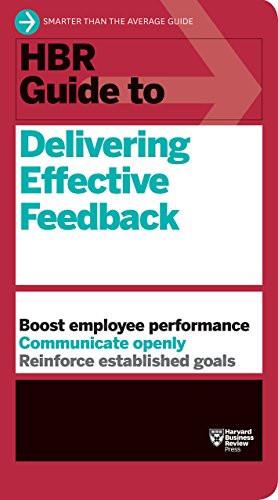Explore the World's Best Ideas
Join today and uncover 100+ curated journeys from 50+ topics. Unlock access to our mobile app with extensive features.
How to help an Underperformer
Underperformance is frustrating, time-consuming, and demoralizing. Knowing how to turn around problematic behavior, letting go, and/or facing issues head-on is a skill.
Outlined here key points how to approach these situations
11
190 reads
1. Don't ignore the problem
Underperformance rarely resolve by themselves. More often, managers ignore the problem and resort to transferring the person somewhere or letting him stay put without doing anything. They only get more and more irritable and frustrated and push the person uncomfortable. If this problem arises, take step toward solving it as soon as possible.
12
137 reads
2. Consider what's causing the problem
Be objective and consider if the person is poor fit for the job, lacking the necessary skills, or misunderstood the expectations. Consider also that you might be contributing to the negative situation. Don't just focus on the underperformer, think about what changes you can make as well.
12
119 reads
3. Ask others what you might be missing
Conduct a 360 review but do it carefully and confidentially. Your frustrations may be clouding your judgement where all you can see are the mistakes they are making. Make an honest effort to see what you're missing and look for evidence that proves your assumptions wrong.
12
110 reads
4. Talk to the underperformer
Once you've gathered the details, explain to the underperformer exactly what you're observing, describe how the team's work is affected, and make it clear that you want to help. Ask questions like, How do we get out of this? How do we improve? It's important to engage the person in brainstorming solutions. Don't expect immediate response, they may need time to digest your feedback.
11
88 reads
5.a. Confirm that the person is coachable
You can't coach someone who doesn't agree that they need help. In the initial conversation- and throughout the intervention- the employee must acknowledge the problem. If they're not open to change, you have to make a decision whether you can live with the issue and at what cost. But if you see willing ness to change and genuine interest in improving, you can work together to turn things around.
11
96 reads
5.b. Confirm that the person is coachable
When you decide to coach the underperformer:
- Make a plan - create a concrete and measurable plan for what the both of you will do differently. Agree on specific goals, resources needed, timeline, etc. Ask them how they feel with the plan.
- Regularly monitor progress - Ask the person to check in regularly or agree how often you're going to check progress. It may be helpful to ask if there is anyone they can trust to provide feedback about how well they're doing in making these changes.
11
78 reads
5.c. Confirm that the person is coachable
When you decide to coach the underperformer:
3. Respect Confidentiality - while also letting others know you're working on the underperformance problem, make sure to keep the specific details confidential.
4. Praise and reward positive changes - make clear that you've noticed developments and reward them accordingly.
5. If there isn't improvement, take action - If things don't get better, leace the coaching and get into consequences speech. Disciplinary actions, particularly letting someone go, shouldn't be taken liightly as it affects the org.
11
70 reads
6. Do's and Don'ts
DO
- Take actions as soon as possible
- Consider how you might be contributing to the performance issues
- Make concrete and measurable plan for improvement
Don't
- Assume the issue is resolved after one conversation
- Try to coach someone who is unwilling to admit that there's an issue
- Talk about specific performance issues with others on the team
11
94 reads
IDEAS CURATED BY
CURATOR'S NOTE
Underperformers in the team will always exist, having a growth mindset means being able to communicate and give appropriate actions that is both useful to the team's goals and the individual.
“
Roy Dahildahil's ideas are part of this journey:
Learn more about books with this collection
The value of hard work and persistence
How to stay focused on long-term goals
How to learn from failures and setbacks
Related collections
Discover Key Ideas from Books on Similar Topics
15 ideas
The Harvard Business Review Entrepreneur's Handbook
Harvard Business Review
18 ideas
Find Your Happy at Work
Beverly E. Jones
20 ideas
Financial Intelligence for Entrepreneurs
Karen Berman, Joe Knight, John Case
Read & Learn
20x Faster
without
deepstash
with
deepstash
with
deepstash
Personalized microlearning
—
100+ Learning Journeys
—
Access to 200,000+ ideas
—
Access to the mobile app
—
Unlimited idea saving
—
—
Unlimited history
—
—
Unlimited listening to ideas
—
—
Downloading & offline access
—
—
Supercharge your mind with one idea per day
Enter your email and spend 1 minute every day to learn something new.
I agree to receive email updates
